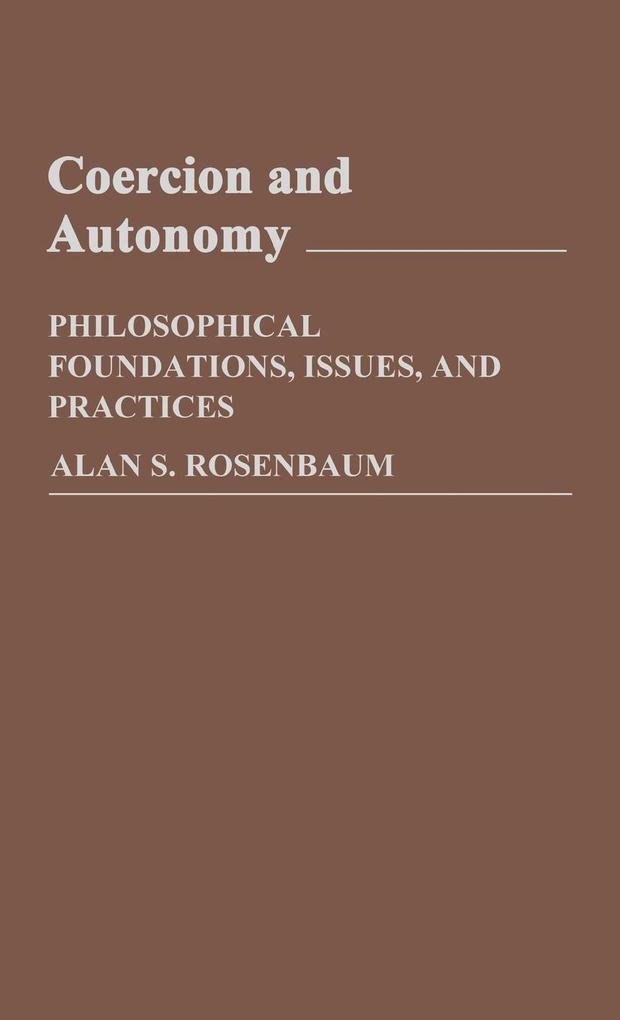?Rosenbaum gives us a penetrating analysis of coercion that includes discussions of various theories of this philosophical notion. His thesis is that coercion is a relational and dynamic concept that is definable mainly with respect to relative and shifting spheres of autonomy.' After discussing coercion from an empirical point of view, the author proceeds to examine subjective (role and intersubjectivity) factors in this concept. He finds some definitions wanting since the social roles of the participants are neglected. As Rosenbaum sees it, the various changing roles between the participants often affect the nature of the relationships and their degree of coerciveness. He uses the Cuban missile crisis as an example, demonstrating Kruschchev's loss of social autonomy. It is the infringement upon social autonomy that is objectionable about coercion. Excellent and copious notes. Appropriate for advanced undergraduates and graduate students in philosophy and allied fields of sociology, social psychology, and political science.?-Choice












